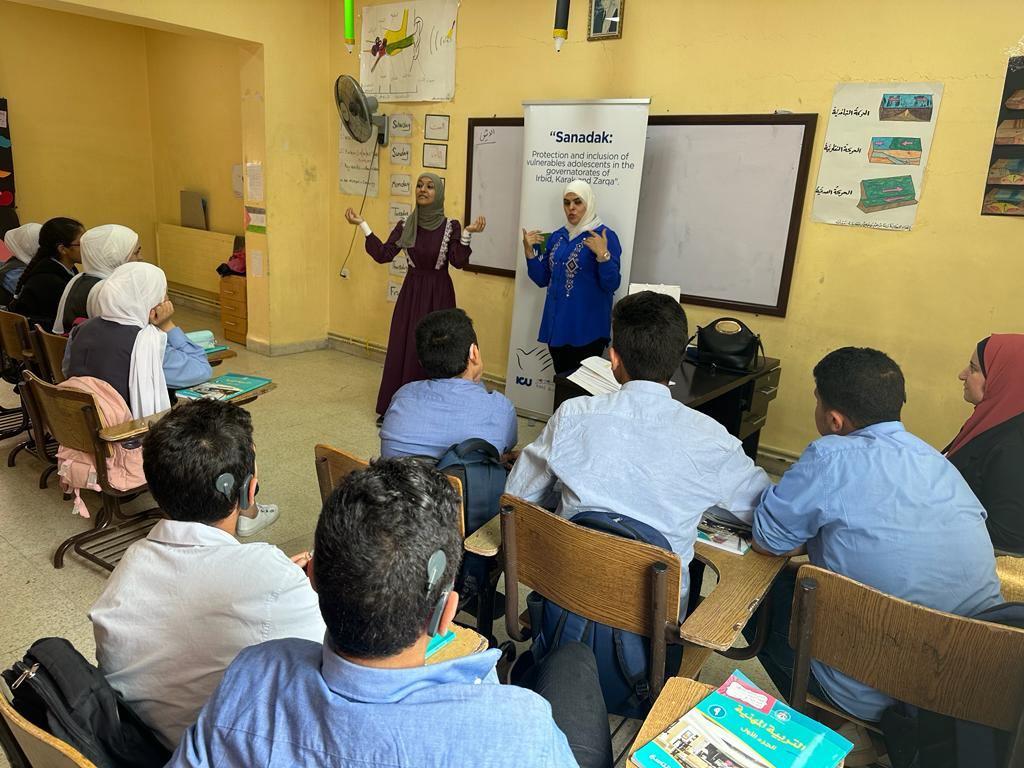28-05-2024 | di COOPI
Jordan. Hiba and Ahmed return to school with AICS
Thirteen years after the start of the humanitarian crisis in Syria, Jordan is still hosting more than 600,000 refugees (UNHCR). Despite the great hosting effort, the conflict in Gaza has shifted attention to other emergency contexts and caused a decrease in funding for basic needs intended for Syrian refugees.
Margherita Gastaldi, head of mission for COOPI- Cooperazione Internazionale in Jordan, reports:
35 percent of Jordan's population lives in poverty, or about 3.980 million people out of 11.3 million.”
Data confirmed by the World Bank, which set the poverty line per capita in Amman at only $7.9 per day. The differences are huge especially between jordan citizens and refugees, with unemployment rates respectively of 22 % and 28%. Children, victims of early marriages and school dropouts, are the most affected.
It is in this context that COOPI, with the project “Sanadak - protection and inclusion for vulnerable adolescents in the governorates of Irbid, Karak and Zarqa,” funded by the Italian Agency for Development Cooperation (AICS), offers services of social protection for children and families in need. The goal of the project is to increase the offer and quality of services dedicated to Syrian children and host communities, particularly adolescents aged 12-17, who are at risk of dropping out of school and victims of abuse, neglect, violence and exploitation, including child labor and early marriage.
Among the project's beneficiaries are Hiba and Ahmed, two teenagers whose lives have been profoundly transformed by COOPI's support.
Hiba, a 15-year-old Syrian student living in Ruseifeh-Zarqa had stopped going to school to help her seriously ill father. No one at home understood how important school was for Hiba, for her mental well-being and development and for her future. Thanks to the Sanadak’s project, Hiba and her family received the needed psychosocial support from COOPI staff to respond differently to the crisis and a financial aid that allowed her not to drop out of school.

After being evicted, Ahmed with his family had moved to live in a crumbling furniture painting store, among acrid smell, rats, no toilets and lack of furniture. His mother could not resist and moved out to live with her parents, leaving 9-year-old Ahmed to care for his two younger siblings. The children did not have enough food and Ahmed started skipping school to help the family. COOPI deployed an urgent care plan for Ahmed and his siblings. The family was assisted by COOPI's case manager and psychologist who provided the necessary psychosocial support and development of a response plan to support Ahmad and his siblings. The family received financial assistance to buy food, pay medical bills, rent a safe, rat-free house with a bathroom, where the mother returned and began caring for her children again following psychotherapy sessions who helped her re-integrating in the family.
One of the most beautiful things for me was being reunited with my children and regaining, with them, a sense of security”
the woman told COOPI.
COOPI has been working in Jordan since 2017 and runs programs to protect minors and support the start-up of economic activities that enable the most fragile to gain autonomy and reduce the use of negative coping mechanism. The organization works in the governorates of Amman, Ajloun, Irbid, Jerash, Karak, Madaba, Mafraq, and Zarqa.




 Jordan
Jordan